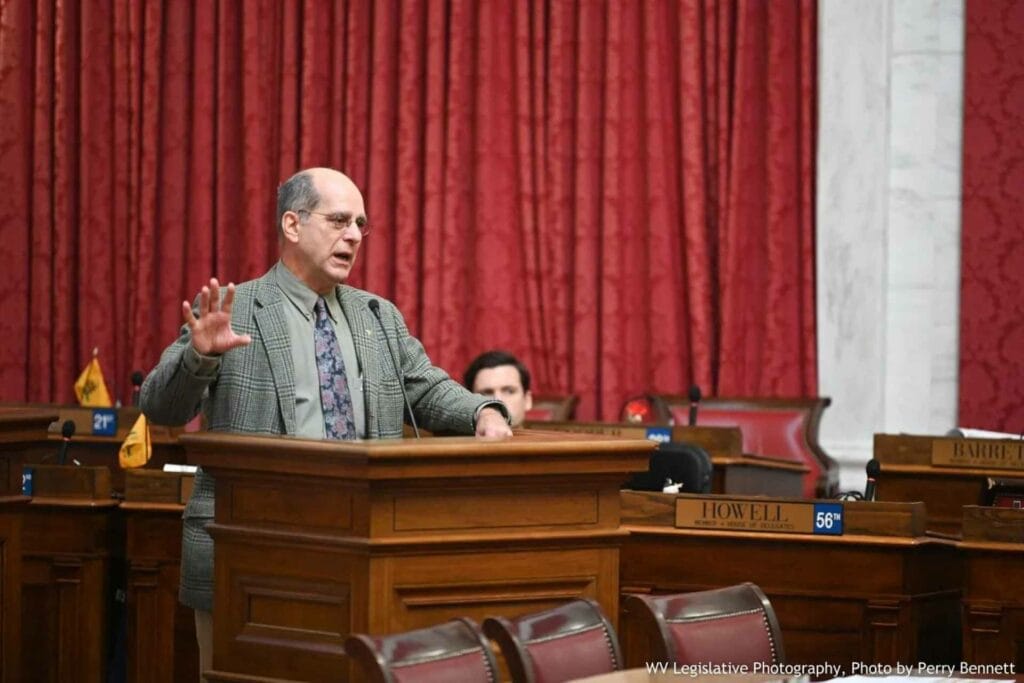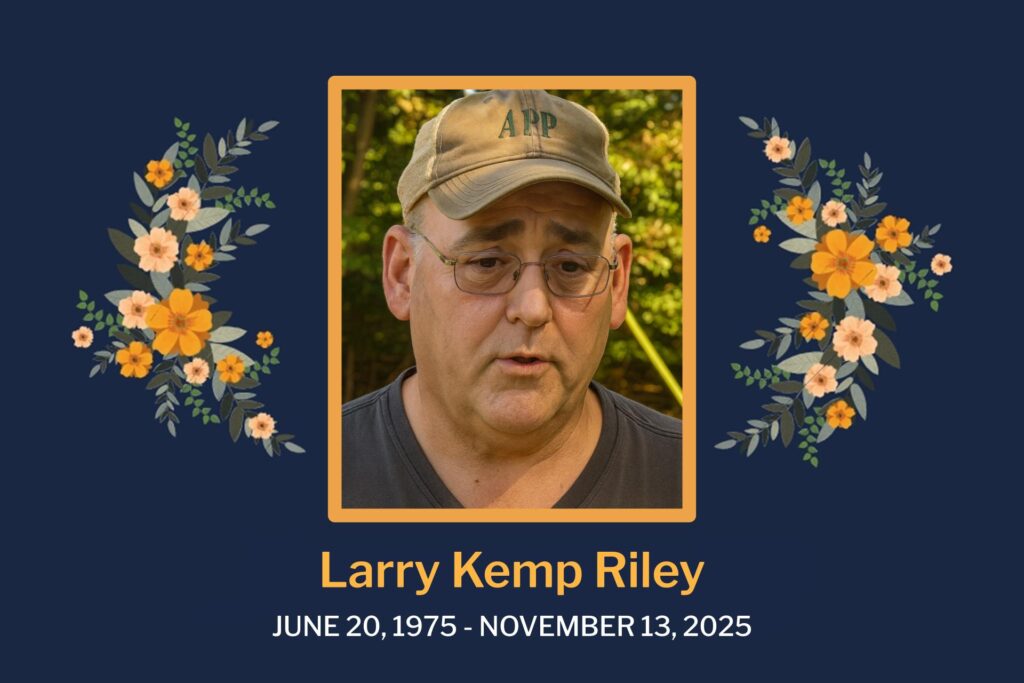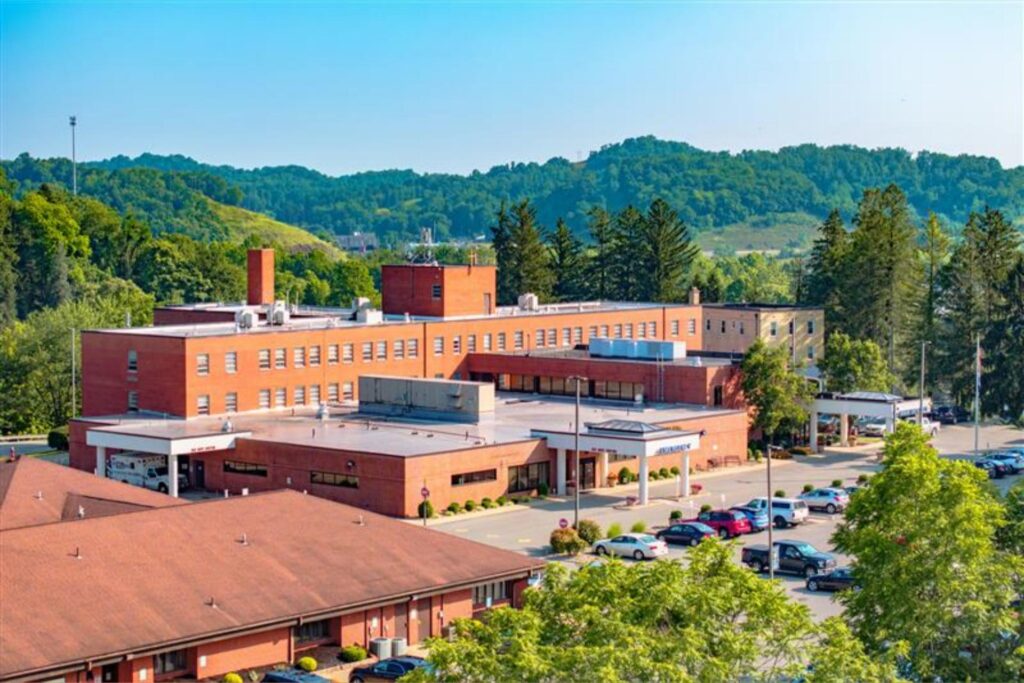Editor’s note: This story was originally published by Mountain State Spotlight. Get stories like this delivered to your email inbox once a week; sign up for the free newsletter at https://mountainstatespotlight.org/newsletter
By Douglas Soule, Mountain State Spotlight
West Virginia lawmakers spent hours before and during the most recent legislative session eyeing measures to attract another extractive industry to the state. This time, the target is rare earth elements and critical minerals: resources necessary for high-tech devices.
Paul Ziemkiewicz of West Virginia University’s Water Research Institute has been developing a process to extract the material —like cerium and yttrium — potentially turning the state’s legacy coal pollution into a financial windfall.
“There’s nothing else like this in the world,” he told lawmakers in September, touting his method to extract the rare earth elements from acid mine drainage.
Lawmakers reacted. They introduced bills to clarify who can profit from the treated pollution, to exempt rare earth minerals and critical minerals from severance taxes and to provide tax breaks for rare earth material and critical mineral products.
But they didn’t spend much time talking publicly about whether opening the state’s doors to the rare earth element industry could backfire, creating some of the economic and environmental problems West Virginians are all too familiar with.
“Those are some of the considerations I think have to be made before we buy into the newest miracle that we found that’s going to resolve all our problems and give us all jobs and create a great economy,” said Cindy Rank, a longtime leader of the West Virginia Highlands Conservancy.
Ultimately, only one of the bills was approved by lawmakers and was signed into law by Gov. Jim Justice. But the industry’s proponents say they’re planning to try again next year.
“I do think that, looking forward, the sky is the absolute limit,” said Delegate Riley Keaton, R-Roane.
2022 legislation
Ziemkiewicz’s method isn’t the only way to extract these elements — there are multiple ways, including from other types of coal waste, or clay deposits in coal seams. But in West Virginia, Ziemkiewicz has already received federal funding to build a pilot facility in Grant County that is expected to begin operations this year.
Ziemkiewicz says he’s confident the process will be economically viable, referencing a feasibility study his team had given to the U.S. Department of Energy. He refused to share it, citing intellectual property protections. Mary Anne Alvin, senior management technical advisor at DOE’s National Energy Technology Laboratory, would not discuss information in the submitted study.
While saying the economics look favorable, some experts have expressed doubt about the amount of rare earth materials that can come from the process.
“It’s not going to be a major producer of rare earths,” said Rick Honaker, a University of Kentucky mining professor and rare earth researcher. “You’ll get small amounts of rare earths, but you won’t get an amount that makes a big difference.”
Ziemkiewicz’s team says acid mine drainage sites in West Virginia, Pennsylvania, Maryland and Ohio could produce up to 2,200 tons of rare earth elements annually; the United States currently uses about 15,000 tons annually.
Keaton said he believes the clay extraction method will be the most commercially successful method in the state.
Legislative champions for the rare earth and critical mineral industry like Delegate Gary Howell, R-Mineral, say there’s lots of interest from major companies that want to launch the industry in West Virginia. Howell, citing a non-disclosure agreement, said he couldn’t provide specific details.
Howell’s legislation to provide rare earth and critical mineral products with tax breaks passed the House overwhelmingly, but never made it to the full Senate.
“We didn’t do a whole lot of research on [the legislation] over the interim, but I’m sure that we will now and work with the stakeholders,” he said. “I’m not real worried about it, because sometimes it takes a couple legislative cycles to get a piece of legislation through, and we have time on this.”
Looking back, and forward
But while lawmakers publicly debated the best ways to incentivize companies to come extract West Virginia’s rare earth minerals, there was no significant public conversation about the potential downside.
And you don’t have to look far to find evidence of West Virginia’s previous economic and environmental compromises.
“I don’t think we should continue to make the mistakes of the past,” said Delegate Mike Pushkin, D-Kanawha. He opposed Howell’s tax credit legislation, saying he hadn’t seen enough evidence it was justifiable. “Right now, I don’t want to start off with giving away the farm.”
Pushkin says he sees those mistakes through the windshield of the cab he drives, and in coal communities like in Boone and McDowell counties.
“I drive through towns that used to be booming. They used to be full of people in businesses, and now they’re just ghost towns,” Pushkin said. “We’ve allowed outside companies to come in and profit off of our natural resources, and not really put back their fair share in our communities. Our communities are really left holding the bag and have nothing to show for it but tainted water and scarred landscapes.”
Keaton, the lead sponsor of the bill about who profits from the acid mine drainage extraction method, said industry officials, lawmakers and West Virginia Department of Environmental Protection employees continue to talk about preventing past problems with this potential new industry.
“So we need to really dig into the issue, pay attention to not messing it up, make sure that it’s environmentally fair and conscious to the people of the state — and that it’s a commercializable model, that it’s something that’s able to be engaged in here in the state,” he said.
But if that conversation is happening, it’s largely behind closed doors. During a December meeting, Jason Wandling, a DEP attorney, reassured lawmakers there were no environmental concerns with rare earth elements.
“None, to my knowledge, these just aren’t harmful constituents,” he said.
But Aaron Mintzes, senior policy counsel for nonprofit Earthworks, said that’s not always the case.
“So, the problem with rare earths is that the radioactive elements that are often associated with their extraction and processing are what cause the health and water problems that DEP should really be concerned about,” he said.
That’s a reality that’s played out before, both in the United States and China. The world’s biggest source of rare earth elements used to be a single mine in California; that mine shut down in 2002, after a number of pipeline spills of radioactive water, but has since reopened and is the only rare earth mine in the country.
China has now been the world’s largest rare earth element producer for decades. This shift, according to a report by the Congressional Research Service, was partly due to the country’s cheaper labor and lower environmental standards.
Alvin said coal waste extraction processes that have received DOE funding, like Ziemkiewicz’s, are required to be environmentally benign.
While there’s renewed interest, both in West Virginia and nationwide, on rebuilding the U.S.’s rare earth mineral industry as a way to shore up national security, Franek Hasiuk, a scientist with the Kansas Geological Survey, says it will take time to do it properly.
“In this country, if we want to have our domestic supplies, we need to figure out a way to be economically competitive with that production without making the environmental compromises that [China seems] to be making,” he said.














